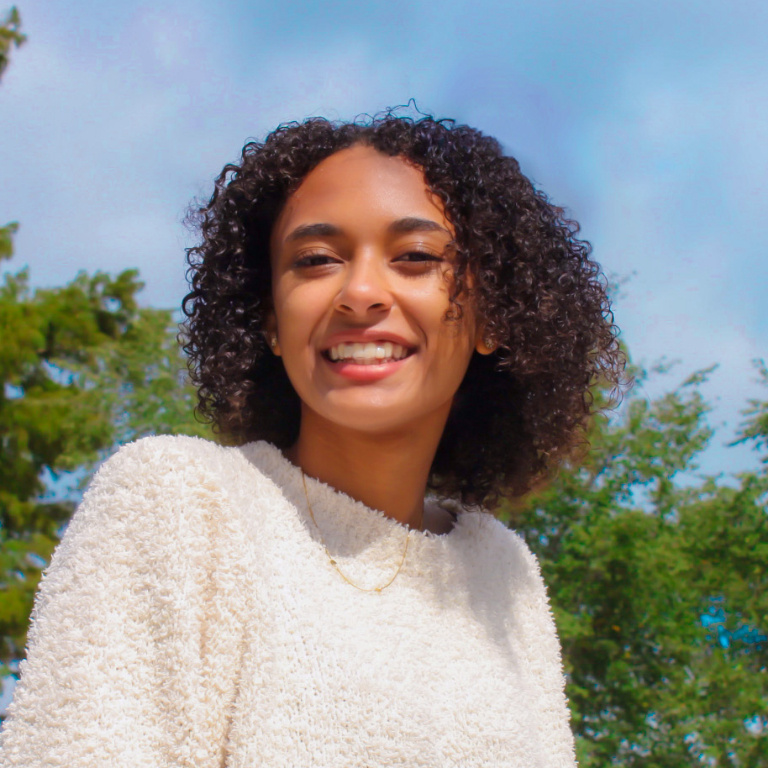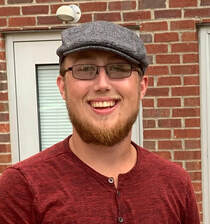Most of the work done is the
lab is the product of collaborations
Current lab members
 Lorenzo Lorenzo-Luaces, PhD, HSPP
Lorenzo Lorenzo-Luaces, PhD, HSPP
Associate Professor
Indiana University-Bloomington
E-mail: lolorenz@iu.edu
Internalizing symptoms like depression and anxiety
are leading causes of disability worldwide. Overall,
cognitive-behavioral therapies are effective
interventions for internalizing symptoms. However, not all who complete
a course of CBT treatment experience a remission of their symptoms.
Moreover, we do not know who will experience positive outcomes following
CBTs, and we have a somewhat limited understanding of how CBTs achieve
their effects. I am an expert in CBT for depression and other
internalizing symptoms having studied outcomes and
processes of change in treatments. A major line of my
work involves exploring the heterogeneity of depression
and other clinical problems to uncover individual differences in
treatments outcomes and processes, especially those differences that
emerge from data-driven approaches. Although I believe
that studying individual differences can get us closer to data-driven
personalization of treatment for depression and anxiety, I am also aware
that many individuals get better without needing “personalization” and
that CBTs are very hard to access. So, a line of my work involves
studying low-intensity ways of delivering CBTs
including by using internet-based CBTs (iCBT) and CBT content delivered
via books (“bibliotherapy”). We know from great work by others that
low-intensity CBT can be as effective as CBT delivered more
“traditionally” like face-to-face in weekly sessions but our work
involves studying the acceptability and dissemination of these
interventions to clinicians and patients. More recently, I have also
become interested in studying vulnerability to depression and anxiety as
can be indexed with data and meta-data that we can acquire from
individuals passively (e.g., by mining their social
media accounts).

I am broadly interested in the classification of
mood and anxiety disorders (internalizing
psychopathology). This includes the structure, comorbidity, and shared
mechanisms of vulnerability in both clinical and
population-based samples. More specifically, in studying mood and
anxiety, I am interested in how people process emotional faces and how
differences in processing may put them more at risk. My research also
examines how changes in neurocognition across the
lifespan are linked to risk for developing symptoms. My
newest line of research uses social media to study
internalizing psychopathology.

I am a graduate from IU and currently the SADCAT Lab Manager as well
as the manager for the NIMH-funded study
 Robinson De Jesus-Romero, M.S.
Robinson De Jesus-Romero, M.S.
Graduate Student (5th year)
Indiana University-Bloomington
E-mail: robdejes@iu.edu
I graduated from the University of Puerto Rico-Rio Piedras with a
Bachelor of Arts in Psychology. I then completed a Master of Science in
Research in Behavior and Cognition at the University of Barcelona. My
current interests revolve around internet-based
therapies, emotion regulation, and
individualized treatment for depression. Specifically,
I am interested in improving the efficacy of and access to
evidence-based interventions, as well as studying emotion regulation as
a means to personalize treatment. A special focus of my work is
improving health for individuals from minoritized
backgrounds, including racial and ethnic minorities, as well as
LGBTQ+ individuals.
 Allison “Alli” Peipert, BS
Allison “Alli” Peipert, BS
Graduate
Student (5th year)
Indiana University-Bloomington
E-mail: apeipert@iu.edu
I received a B.S. in psychology and Spanish from Furman University in
2017. I study interventions for common mental disorders with a
particular interest in populations at greater risk for development of
psychopathology and perceived barriers to treatment. My research focuses
on increasing intervention accessibility and
translating research findings into clinical practice
settings. I hope to inform standardized assessment
practices, improve our understanding of evidence-based treatments, and
identify strategies to integrate research findings into standard care.
My current research projects study: quality of life outcomes in
psychotherapy, effectiveness and barriers to providing low-intensity
treatments, and psychosocial outcomes of gender-affirming care for
youth.
 John “Jack” Buss, BS
John “Jack” Buss, BS
Graduate
Student (3rd year)
Indiana University-Bloomington
E-mail: bussj@iu.edu
I am a clinical science graduate student primarily interested in the
classification and computational
modeling of mood disorders. My current projects include
evaluations of the heterogeneity within the
melancholic and atypical specifiers for depression and
an assessment of melancholic symptoms as represented by the Sydney
Melancholia Prototype Index (SMPI). I hope to help further the research
field’s understanding regarding these traditional depressive subtypes
considering depression’s potential endophenotypes.
 Isabella Starvaggi, BA
Isabella Starvaggi, BA
Graduate
Student (3rd year)
Indiana University-Bloomington
E-mail: irstarva@iu.edu
Before coming to Indiana University, I completed a B.S. in Psychology
and a B.S. in Statistics at Carnegie Mellon University. During my
undergraduate years I also conducted research at the University of
Pittsburgh investigating cognitive vulnerabilities in
seasonal affective depression. I am currently interested in
digitally delivered treatments for depression,
prediction of individual treatment “match” and
treatment response, depression assessment and
diagnosis.

My research interests include internet-based treatments for
psychological problems, and the effects of trauma on
daily life. Currently, I am working on a project involving
mental health apps such as Calm, and Headspace.
Past lab members

I am an undergraduate student pursuing a BS in Clinical Psychological
Science and a BS in Informatics, with my cognate in Public Health. My
research interests include using social media as a way to understand the
public’s perceptions and attitudes toward various mental health topics,
such as treatment options or diagnoses. Additionally, I have taken
interest in exploring mis/disinformation about topics in mental health
on social media.

My primary research interests focus on dissemination
and implementation, specifically the implementation of
measurement-based care in community settings, as well as the impact of
trauma on functioning and emotion
regulation. Among the projects I worked on was a project
assessing whether anxiety is a superior predictor of decreased
functioning and well-being in individuals with symptoms of borderline
personality disorder (BPD). This lead to a first author publication in
PLOS
ONE.

Tennisha N. Riley joined the SADCAT lab in 2018 as a postdoctoral
fellow at the Indiana University Center for Research on Race and
Ethnicity in Society (CRRES) after receiving her PhD in Developmental
Psychology from Virginia Commonwealth University. Tennisha is an
adolescent researcher who examines emotion expression and emotion
regulation within social context broadly. Her primary research focus is
on understanding the emotional development of Black youth, examining how
Black youth’s social context (family, friends, school) influence emotion
expression and emotion regulation, as well as the role emotion
expression and emotion regulation play in Black youth’s decisions to
engage in both risk-related and prosocial behaviors. Tennisha is now an
Assistant
Professor in IU’s School of Education’s Counseling and Educational
Psychology Department.

I am a post-baccalaureate student seeking a second degree in
Psychology (B.S) with an interest in clinical work. My background is in
harm reduction services for people who inject
drugs, participate in other risky activities,
or who experience extreme poverty. I am interested in
the comorbidity of affective disorders and substance use
disorders, and the efficacy of brief interventions and self
help therapeutic resources in reducing the public health burden of
substance use disorders and concomitant affective disorders.
 Kendall Riley, B.S.
Kendall Riley, B.S.
Graduate
Student
University of Iowa
I graduated from Indiana University in 2020 with B.S. degrees in
human biology and psychology. My research interests lie at the
intersection of public health, sociology, and criminology. During my
undergraduate education, I worked in clinical psychology and social
psychology laboratories wherein I was the lead research assistant on
projects centered around substance use, stigma, and youth disinhibition.
These experiences jumpstarted my interest on adversity, health, and the
collateral consequences of incarceration. In graduate school, my main
line of research explores incarceration as a social determinant of
health. I aim to highlight what fosters resiliency in the face of
incarceration, especially for Black families. Outside of research, I
enjoy reading, weightlifting, playing with my cats, and online window
shopping.
 Emily Johns, BA
Emily Johns, BA
Graduate Student
University of Missouri
Other lab members:
- Greg Banks
- Devon Miller
- Tres Lamar Kirtley
Key collaborators
According to Scopus,
I have at least 64 collaborators. Below, I highlight some of them:
Most of the work done is the lab is the product of collaborations
Current lab members

Associate Professor
Indiana University-Bloomington
E-mail: lolorenz@iu.edu
Internalizing symptoms like depression and anxiety are leading causes of disability worldwide. Overall, cognitive-behavioral therapies are effective interventions for internalizing symptoms. However, not all who complete a course of CBT treatment experience a remission of their symptoms. Moreover, we do not know who will experience positive outcomes following CBTs, and we have a somewhat limited understanding of how CBTs achieve their effects. I am an expert in CBT for depression and other internalizing symptoms having studied outcomes and processes of change in treatments. A major line of my work involves exploring the heterogeneity of depression and other clinical problems to uncover individual differences in treatments outcomes and processes, especially those differences that emerge from data-driven approaches. Although I believe that studying individual differences can get us closer to data-driven personalization of treatment for depression and anxiety, I am also aware that many individuals get better without needing “personalization” and that CBTs are very hard to access. So, a line of my work involves studying low-intensity ways of delivering CBTs including by using internet-based CBTs (iCBT) and CBT content delivered via books (“bibliotherapy”). We know from great work by others that low-intensity CBT can be as effective as CBT delivered more “traditionally” like face-to-face in weekly sessions but our work involves studying the acceptability and dissemination of these interventions to clinicians and patients. More recently, I have also become interested in studying vulnerability to depression and anxiety as can be indexed with data and meta-data that we can acquire from individuals passively (e.g., by mining their social media accounts).

I am broadly interested in the classification of mood and anxiety disorders (internalizing psychopathology). This includes the structure, comorbidity, and shared mechanisms of vulnerability in both clinical and population-based samples. More specifically, in studying mood and anxiety, I am interested in how people process emotional faces and how differences in processing may put them more at risk. My research also examines how changes in neurocognition across the lifespan are linked to risk for developing symptoms. My newest line of research uses social media to study internalizing psychopathology.

I am a graduate from IU and currently the SADCAT Lab Manager as well as the manager for the NIMH-funded study

Graduate Student (5th year)
Indiana University-Bloomington
E-mail: robdejes@iu.edu
I graduated from the University of Puerto Rico-Rio Piedras with a Bachelor of Arts in Psychology. I then completed a Master of Science in Research in Behavior and Cognition at the University of Barcelona. My current interests revolve around internet-based therapies, emotion regulation, and individualized treatment for depression. Specifically, I am interested in improving the efficacy of and access to evidence-based interventions, as well as studying emotion regulation as a means to personalize treatment. A special focus of my work is improving health for individuals from minoritized backgrounds, including racial and ethnic minorities, as well as LGBTQ+ individuals.

Graduate Student (5th year)
Indiana University-Bloomington
E-mail: apeipert@iu.edu
I received a B.S. in psychology and Spanish from Furman University in 2017. I study interventions for common mental disorders with a particular interest in populations at greater risk for development of psychopathology and perceived barriers to treatment. My research focuses on increasing intervention accessibility and translating research findings into clinical practice settings. I hope to inform standardized assessment practices, improve our understanding of evidence-based treatments, and identify strategies to integrate research findings into standard care. My current research projects study: quality of life outcomes in psychotherapy, effectiveness and barriers to providing low-intensity treatments, and psychosocial outcomes of gender-affirming care for youth.

Graduate Student (3rd year)
Indiana University-Bloomington
E-mail: bussj@iu.edu
I am a clinical science graduate student primarily interested in the classification and computational modeling of mood disorders. My current projects include evaluations of the heterogeneity within the melancholic and atypical specifiers for depression and an assessment of melancholic symptoms as represented by the Sydney Melancholia Prototype Index (SMPI). I hope to help further the research field’s understanding regarding these traditional depressive subtypes considering depression’s potential endophenotypes.

Graduate Student (3rd year)
Indiana University-Bloomington
E-mail: irstarva@iu.edu
Before coming to Indiana University, I completed a B.S. in Psychology and a B.S. in Statistics at Carnegie Mellon University. During my undergraduate years I also conducted research at the University of Pittsburgh investigating cognitive vulnerabilities in seasonal affective depression. I am currently interested in digitally delivered treatments for depression, prediction of individual treatment “match” and treatment response, depression assessment and diagnosis.

My research interests include internet-based treatments for psychological problems, and the effects of trauma on daily life. Currently, I am working on a project involving mental health apps such as Calm, and Headspace.
Past lab members

I am an undergraduate student pursuing a BS in Clinical Psychological Science and a BS in Informatics, with my cognate in Public Health. My research interests include using social media as a way to understand the public’s perceptions and attitudes toward various mental health topics, such as treatment options or diagnoses. Additionally, I have taken interest in exploring mis/disinformation about topics in mental health on social media.

My primary research interests focus on dissemination and implementation, specifically the implementation of measurement-based care in community settings, as well as the impact of trauma on functioning and emotion regulation. Among the projects I worked on was a project assessing whether anxiety is a superior predictor of decreased functioning and well-being in individuals with symptoms of borderline personality disorder (BPD). This lead to a first author publication in PLOS ONE.

Tennisha N. Riley joined the SADCAT lab in 2018 as a postdoctoral fellow at the Indiana University Center for Research on Race and Ethnicity in Society (CRRES) after receiving her PhD in Developmental Psychology from Virginia Commonwealth University. Tennisha is an adolescent researcher who examines emotion expression and emotion regulation within social context broadly. Her primary research focus is on understanding the emotional development of Black youth, examining how Black youth’s social context (family, friends, school) influence emotion expression and emotion regulation, as well as the role emotion expression and emotion regulation play in Black youth’s decisions to engage in both risk-related and prosocial behaviors. Tennisha is now an Assistant Professor in IU’s School of Education’s Counseling and Educational Psychology Department.

I am a post-baccalaureate student seeking a second degree in Psychology (B.S) with an interest in clinical work. My background is in harm reduction services for people who inject drugs, participate in other risky activities, or who experience extreme poverty. I am interested in the comorbidity of affective disorders and substance use disorders, and the efficacy of brief interventions and self help therapeutic resources in reducing the public health burden of substance use disorders and concomitant affective disorders.

Graduate Student
University of Iowa
I graduated from Indiana University in 2020 with B.S. degrees in human biology and psychology. My research interests lie at the intersection of public health, sociology, and criminology. During my undergraduate education, I worked in clinical psychology and social psychology laboratories wherein I was the lead research assistant on projects centered around substance use, stigma, and youth disinhibition. These experiences jumpstarted my interest on adversity, health, and the collateral consequences of incarceration. In graduate school, my main line of research explores incarceration as a social determinant of health. I aim to highlight what fosters resiliency in the face of incarceration, especially for Black families. Outside of research, I enjoy reading, weightlifting, playing with my cats, and online window shopping.

Graduate Student
University of Missouri
Other lab members:
- Greg Banks
- Devon Miller
- Tres Lamar Kirtley
Key collaborators
According to Scopus, I have at least 64 collaborators. Below, I highlight some of them:




